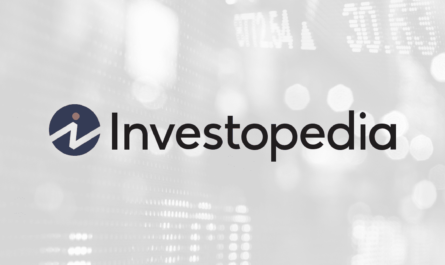| Company | Monthly Fee | Interest Earned | Available Banking Services | Automatic Sweeps | FDIC Insurance |
|---|---|---|---|---|---|
| Betterment Best Overall | None | 4.75% APY, 5.50% as a sign-up bonus | ATM withdrawals, debit card for purchases, check writing | No | Yes, $2 million |
| Wealthfront Best for Paycheck Direct Deposit | 0.25% | 5.00% APY (5.50% when you refer a friend) | ATM withdrawals, debit card for purchases, early access to paychecks, check writing | Yes | Yes, $8 million ($16 million for joint accounts) |
| Merrill Guided Investing Best for Traditional Banking Services |
$125 per year, can be waived after meeting certain conditions | 0.01% | Check writing, ATM withdrawals and cash deposits, in-person service, bill pay | Yes | Yes, $250,000 |
| Titan Invest Best for Earning a High Interest Rate |
None | 5.29% | None | Yes | Yes, $5 million |
Guide to Choosing the Best Cash Management Account
As you compare different cash management accounts, these factors can help you determine the right fit.
- Annual percentage rate (APY): The APY is the interest earned on your cash management account balance. There can be a massive range from generous returns to practically nothing. Ideally, your APY should be as high as possible.
- FDIC insurance: FDIC insurance replaces your cash management account balance if the robo-advisor goes bankrupt. Some cash management accounts offer far more than the standard $250,000 of coverage traditional banks provide. Keep this in mind if you have an especially large cash balance.
- Fees: Robo-advisors can charge monthly fees for cash management accounts. They can also charge fees for ATM withdrawals, check cashing, and other services. Aim to keep fees low, especially since so many low-cost options are available.
- Account services: What banking services do you want from your cash management account? Some only earn interest and allow electronic withdrawals/deposits between accounts. Others offer a full range of banking services, including ATM access, check writing, bill pay, and direct deposit for paychecks.
- Investment services: You should also consider how a company’s investment services and robo-advisor match your needs. While you could open your robo-advisor and cash management accounts at different companies, having them in the same place is more convenient. You should also see if a company offers automatic sweeps, where it automatically moves your uninvested cash into the cash management account to earn interest.
- Customer service: What do you need for customer service with your cash management account? Many robo-advisors offer bare-bones support through email and a mobile app. Others provide phone and in-person support.
What Are Alternatives to Cash Management Accounts?
- High-yield savings accounts: High-yield savings accounts come from banks and credit unions. The best high-yield savings accounts pay interest rates as high as cash management accounts. A high-yield savings account would likely provide more banking services and support since it comes from an actual bank. However, savings accounts can limit how often you can make certain monthly withdrawals.
- Money market accounts: Money market accounts are also bank deposit accounts, with checks and an ATM card. The best money market accounts require larger balances than a traditional checking account and, in exchange, pay higher interest rates. A money market account could be better if you have a larger balance and want more checking account services. However, cash management accounts tend to have lower fees, especially if you have a smaller balance.
- Certificates of deposit (CDs): A CD locks up your money for a set period of months or years. In exchange, it pays a higher interest rate than other bank deposit accounts. But if you try to withdraw early, you forfeit interest as a penalty. The best CD accounts could be an option if you don’t need immediate access to your cash and want the highest possible interest rate. A cash management account is better for flexible withdrawals.
What Is a Cash Management Account?
A cash management account provides traditional banking services from a non-bank organization, like an investment firm, a broker, or a robo-advisor. Cash management accounts earn interest on uninvested cash. They may also provide ATM withdrawals, bill pay, check writing, and direct deposit. Non-bank organizations promote these accounts to attract new customers.
Are Cash Management Accounts Taxable?
Yes, your interest earnings from a cash management account are taxable. Each year, the company managing your cash management account will send you a statement showing your interest earnings, which you must report as income to the government. The same tax rules as earning interest from a bank account apply to cash management accounts.
Can You Withdraw Money From a Cash Management Account?
Yes, you can withdraw money from a cash management account, though the process depends on which robo-advisor you use. Some limit you to electronic withdrawals. You must transfer the funds to another bank account to make cash withdrawals or pay bills. Other cash management accounts include debit cards, which you can use to make purchases or withdraw cash using an ATM.
How We Picked the Best Robo-Advisors for Cash Management
Providing readers with unbiased, comprehensive reviews of digital wealth management companies, more commonly known as robo-advisors, is a top priority of Investopedia. We used our 2023 consumer survey to guide the research and weightings for our 2024 robo-advisor awards. To collect the data, we sent a digital survey with 64 questions to each of the 21 companies we included in our rubric. Additionally, our team of researchers verified the survey responses and collected any missing data points through online research and conversations with each company directly. The data collection process spanned from Jan. 8, to Feb. 9, 2024.
We then developed a quantitative model that scored each company to rate its performance across nine major categories and 59 criteria to find the best robo-advisors. The score for each company’s overall star rating is a weighted average of the criteria:
- Account Services — 10.00%
- Account Setup — 5.00%
- Customer Service — 5.00%
- Fees — 15.00%
- Goal Planning — 21.00%
- Portfolio Contents — 17.00%
- Portfolio Management — 17.00%
- Security & Education — 5.00%
- User Experience — 5.00%
Additionally, during our 2023 research, many of the companies we reviewed granted our team of expert writers and editors access to live accounts so they could perform hands-on testing.
Through this all-encompassing data collection and review process, Investopedia has provided you with an unbiased and thorough review of the top robo-advisors.
Read more about how we research and review robo-advisors.
Separately, our research team conducted a survey of 205 U.S. adults aged 18 to 72 who are current clients of one of 18 robo-advisors. While the information collected did not influence the development of our ratings model, it was instrumental in gathering the valuable insights published in Investopedia’s 2023 Robo-Advisor Consumer Survey.
Participants in our 2023 Robo-Advisor Survey opted-in to an online, self-administered questionnaire from a market research vendor. Data collection took place between Aug. 30, and Sept. 15, 2023, with 11 video interviews conducted with volunteer respondents from Sept. 7, to Sept. 17, 2023. Multiple quality checks, including screeners, attention gauges, comprehension evaluations, and logic metrics, among others, were used to ensure only the highest quality responses were included.
The above material and content should not be considered to be a recommendation. Investing in digital assets is highly speculative and volatile, and only suitable for investors who are able to bear the risk of potential loss and experience sharp drawdowns. Digital assets are not legal tender and are not backed by the U.S. government. Digital assets are not subject to FDIC insurance or SIPC protections.
Dotdash Meredith receives cash compensation from Wealthfront Advisers LLC (“Wealthfront Advisers”) for each new client that applies for a Wealthfront Automated Investing Account through our links. This creates an incentive that results in a material conflict of interest. Dotdash Meredith is not a Wealthfront Advisers client, and this is a paid endorsement. More information is available via our links to Wealthfront Advisers.



